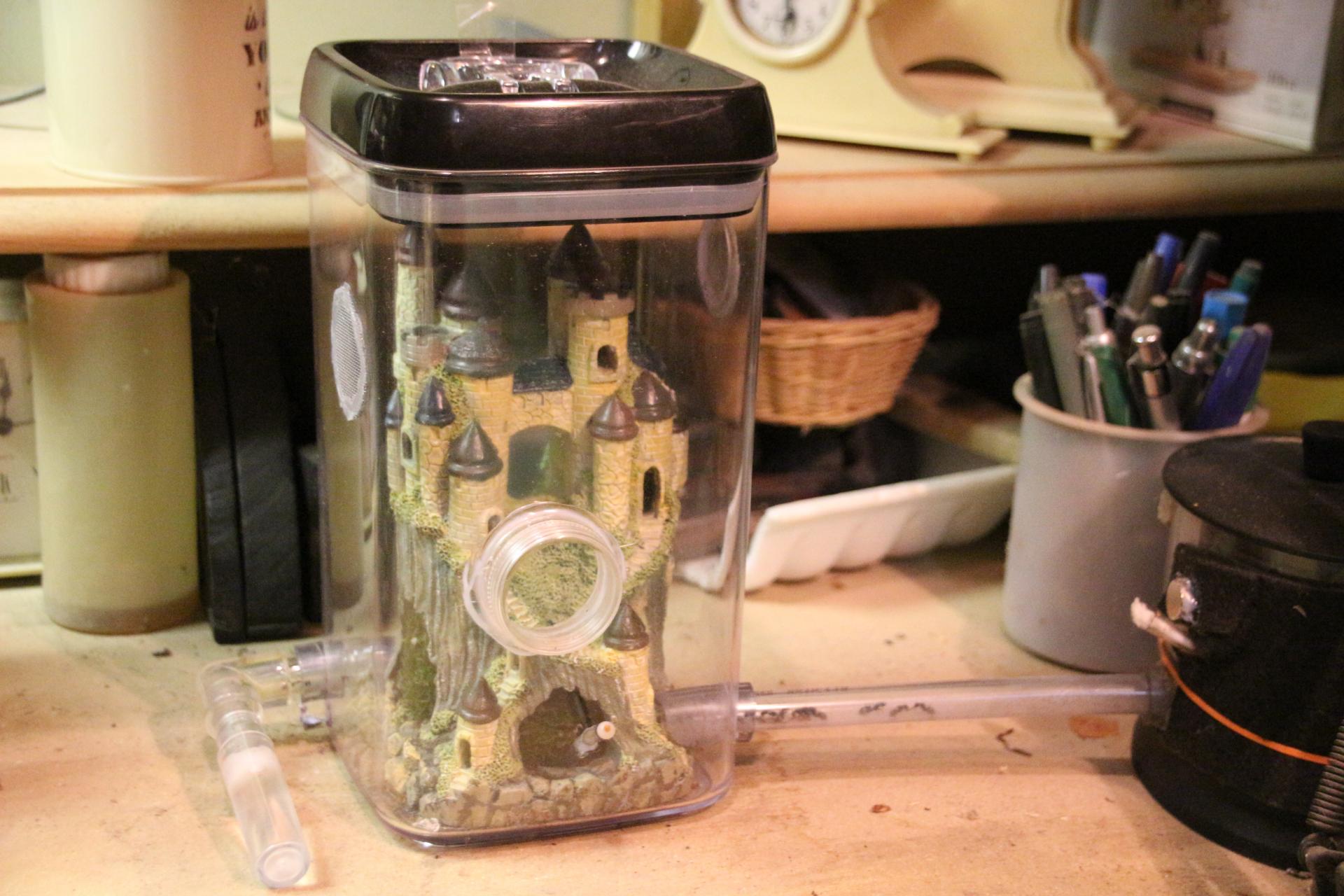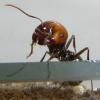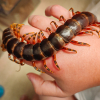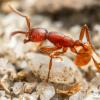Results from Two Feeding Experiments
This past season I carried out two feeding experiments, one with a Camponotus colony and the other with a Myrmica colony. I should start out by saying that these colonies were of average intelligence and medium size. Both had laying queens and were raising brood during the time.
For most of the season these ants were fed almost every day for both experiments. Except for vacation times, they were fed six days out of every seven. In both experiments, feeding was done on a platform so the ants had to climb up where I could easily observe them. I tried to gauge the hunger of the colony by the number of workers out foraging and their activity in the feeding area. By feeding them in the same place every day they learn where to find their food and when they were hungry, they went there looking for it, so it was an excellent way to monitor just how badly they really wanted that protein or sugar.
Meat Only Diet for a Camponotus Colony
The first experiment was with a three-year-old Camponotus pennsylvanicus colony, which I fed only meat products to for the entire season. They are in a formicarium in which I wanted to deal with absolutely no garbage or trash from insects etc, so I fed them only meat products which produced little, if any, trash throughout the whole season. These meat products included, cooked chicken meat and liver, raw pork, cooked turkey meat and liver, ham, canned dog food, sardines, salmon, and egg yolk. I had absolutely no problems with this colony all season long and they produced three nice batches of brood and have a nice egg and larvae pile that they’ve taken into diapause this winter.
I also fed this diet to my other Camponotus colonies, but I included insects in their diet more as a treat than anything else. All colonies had water, sugar/water, some fruit and all grew very well this season.
This Camponotus Colony survived quite nicely for a season eating meat products and no insects.
Dry Sugar Option for a Myrmica Colony
The second experiment was with a Myrmica colony. In this case I used an artificial flower as their feeding platform where I placed dry granular sugar every day. I fed their protein in a different location. These ants also had sugar/water available to them, but they seemed to prefer the granular sugar and in fact, were often waiting for it every day in the flower. They accepted it readily and took the sugar/water very little. They primarily depended on the granular sugar for their carbohydrate, as far as I could tell.
Unfortunately, this colony fell victim to the disease that affected many of my colonies this summer. They didn’t continue this experiment for the entire season, but I think I saw enough of their reaction and their feeding behavior to believe that, had they been healthy, they would’ve continued enjoying the granular sugar throughout the summer.
Conclusions
In the first experiment, I observed that it's possible to keep a healthy colony of Camponotus ants for an entire season without feeding them any insects. This was accomplished by feeding them a variety of meat products, properly presented. This affords the ant keeper many advantages including less trash, fewer problems with diseases and pests, no cost for insects, provides a varied diet, dog food contains micronutrients and vitamins, and meat is easy to process in large amounts for large colonies of ants. You may be thinking this is fine for a large colony, that small colonies won’t accept it. I usually feed cooked chicken liver as the first protein I give a colony in the test tube. It has never been rejected.
In the second experiment I observed that Myrmica ants will readily accept dry sugar instead of sugar/water. There may be many instances where this option will come in handy for the ant keeper. Dry sugar could be fed to ants that constantly want to plug up their liquid feeders with trash. Dry sugar could be fed to ants in test tubes to reduce the potential for small ants drowning. I also found that ants would hunt for sugar grains, so I sprinkled some in a dry area for them to search for, just to keep them busy. There is one other consideration if feeding dry sugar. Sugar grains will draw moisture from the air, after an hour or so, a sugar grain becomes a small drop of highly concentrated liquid sugar. This provides a highly concentrated energy source, but, If not completely cleaned up, it can promote mold.
Meat products can be substituted for insects in Camponotus' diets. I have fed these same meat products to all my ant colonies with varying success. Cooked chicken and turkey, both meat and liver are readily accepted, and I've always found dog food to be very popular. Dry sugar is accepted by Myrmica ants and may be acceptable to many other types of ants. It's a viable alternative to sugar/water and may be preferable in some cases.
What success have you had feeding meat products or granular sugar? Any other alternative foods that you've tried?
I'm happy to answer any questions you may have.
RPT























